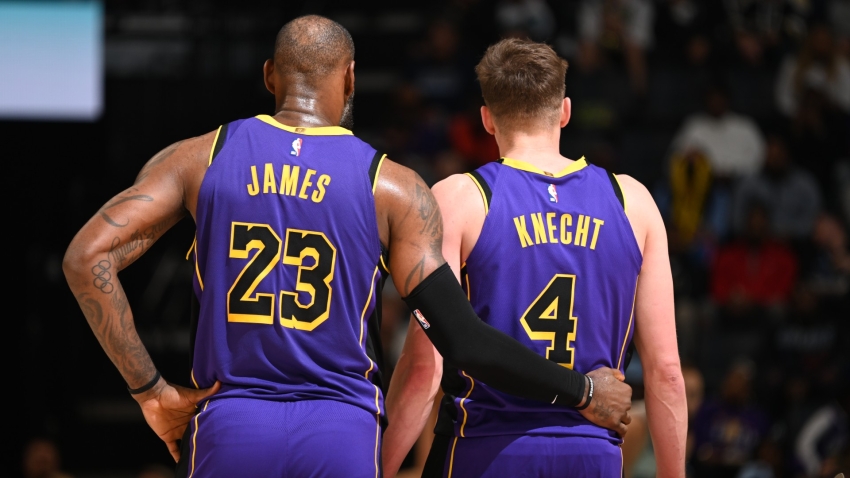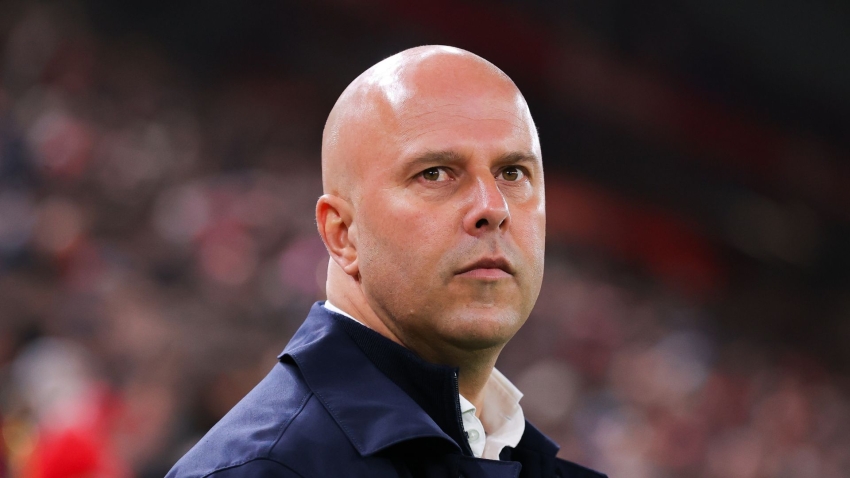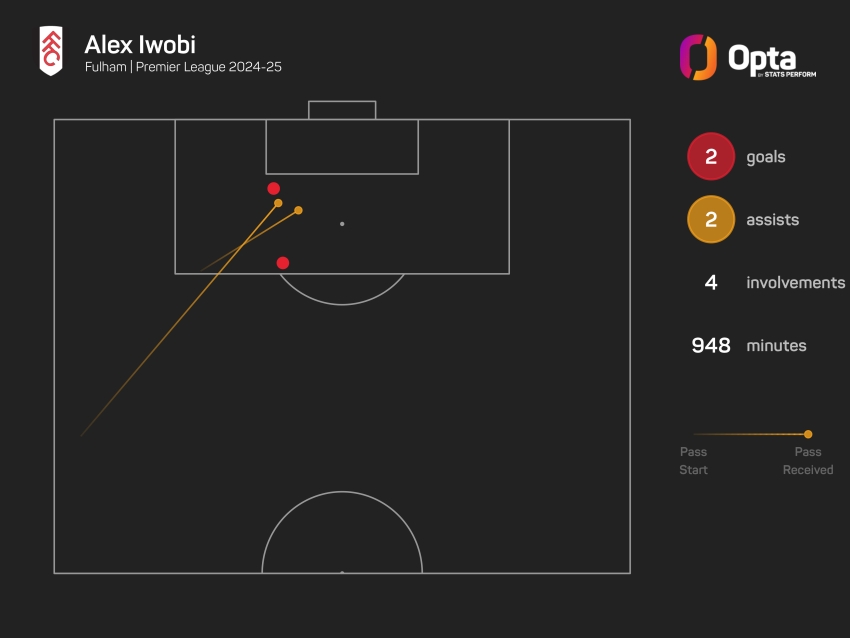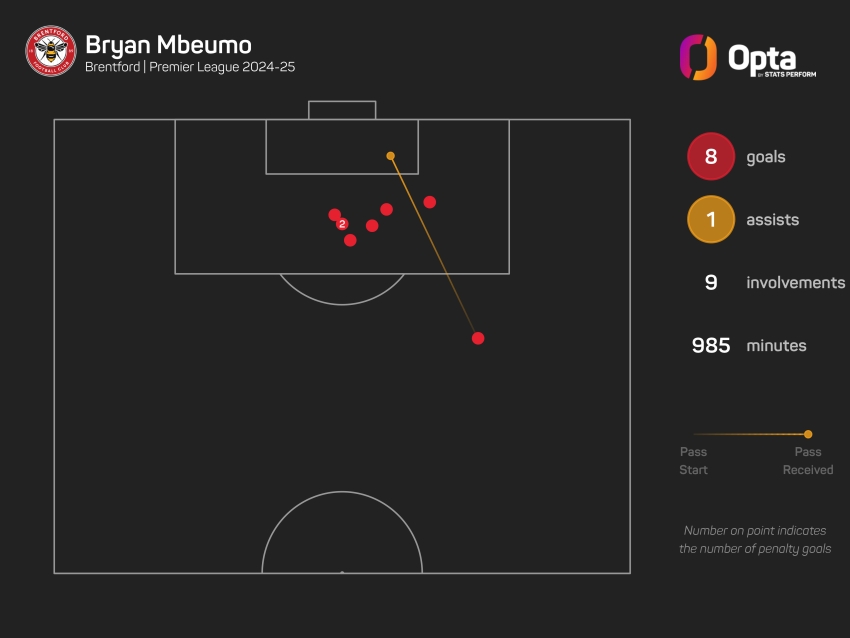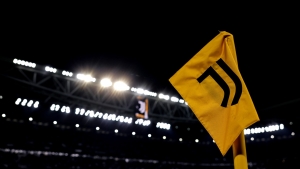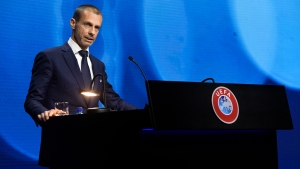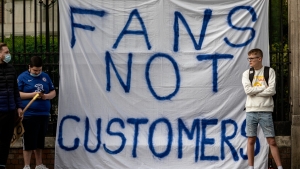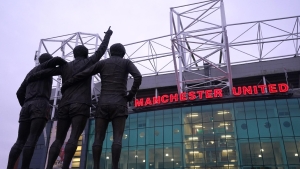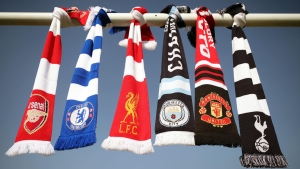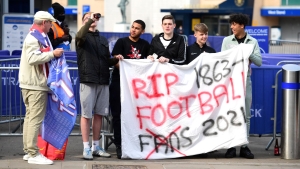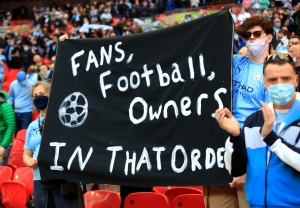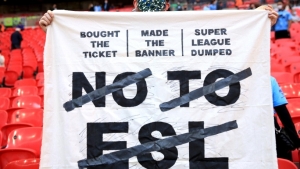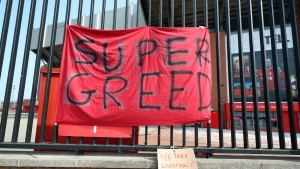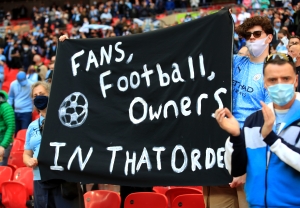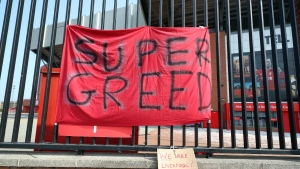The Football Supporters Association says “there is no place for an ill-conceived breakaway super league” after the European Court of Justice ruled banning clubs from joining was unlawful.
The Grand Chamber of the European Court of Justice had been asked to decide whether UEFA and FIFA acted against competition law by blocking the formation of a breakaway Super League in 2021 and seeking to sanction the clubs involved.
The court ruled on Thursday that the governing bodies’ rules granting prior approval for new competitions are contrary to EU law.
But FSA chief executive Kevin Miles said: “As our friends at Football Supporters Europe point out – there is no place for an ill-conceived breakaway super league.
“Supporters, players and clubs have already made clear they don’t want a stitched-up competition – we all want to see the trigger pulled on the walking dead monstrosity that is the European Zombie League.
“While the corpse might continue to twitch in the European courts, no English side will be joining. The incoming independent regulator will block any club from competing in domestic competition if they join a breakaway super league.
“Success must be earned on the pitch, not stitched-up in boardrooms”
Real Madrid president Florentino Perez, who has remained an avid supporter of a European Super League, insists football clubs will be the “masters of their destiny”, saying “law, reason and freedom” have prevailed after the hearing.
“At Real Madrid, we welcome the decision taken by the Court of Justice of the European Union, which is responsible for guaranteeing our principles, values and freedoms,” he said in a statement.
“In the coming days we will study the scope of this resolution in detail, but I do anticipate two conclusions of great historical significance.
“Firstly, that European club football is not and will never again be a monopoly. And secondly, that from today the clubs will be the masters of their destiny.
“We, the clubs, see our right to propose and promote European competitions that modernise our sport and attract fans from all over the world fully recognised. In short, today the Europe of freedoms has triumphed again and today so have football and its fans.
“In the face of the pressures we have been under for more than two years, law, reason and freedom prevail today. And that’s why Real Madrid will continue to work for the good of football.”
Despite being long-term rivals on the pitch, Real Madrid and Barcelona have united as advocates of a super league.
A Barca statement read: “FC Barcelona would like to express its satisfaction with the ruling of the Court of Justice of the European Union (CJEU) in which the Super League project proposed by A22 Sports is endorsed.
“As one of the driving forces behind the Super League, FC Barcelona believes the ruling opens the way to a new top-level football competition in Europe by opposing the monopoly over the football world, and wishes to initiate new discussions as to the path that European competitions should take in the future.”
The views of LaLiga’s two biggest clubs were in stark contrast to those of Football Supporters Europe, who maintain any plans to form a Super League continue to “endanger the future” of European football.
Fans across the continent came together to vehemently oppose the Super League’s formation in 2021, with the six Premier League clubs among those to pull out once the negative reaction flooded in.
“FSE notes today’s decision by the CJEU and wants to reiterate that there is no place in European football for a breakaway super league,” a statement read.
“Since 2021, FSE and fans across Europe have stood firm against a breakaway super league time and time again, and repeatedly called for the greater protection of our game.
“Our clubs, our competitions and our local communities need protection. We will examine the ruling’s wider implications and comment further in due course.
“Whatever comes next, the super league remains an ill-conceived project that endangers the future of European football. FSE, our members, and fans across Europe will continue to fight it.”
In the UK, a Department for Culture, Media and Sport spokesperson said: “The attempt to create a breakaway competition was a defining moment in English football and was universally condemned by fans, clubs and the Government.
“We took decisive action at the time by triggering the fan-led review of football governance, which called for the creation of a new independent regulator for English football.
“We will shortly be bringing forward legislation that makes this a reality, and will stop clubs from joining any similar breakaway competitions in the future.”
The European Club Association said “the world of football moved on from the Super League years ago and progressive reforms will continue” and that “the judgment in no way whatsoever supports or endorses any form of Super League project”.




